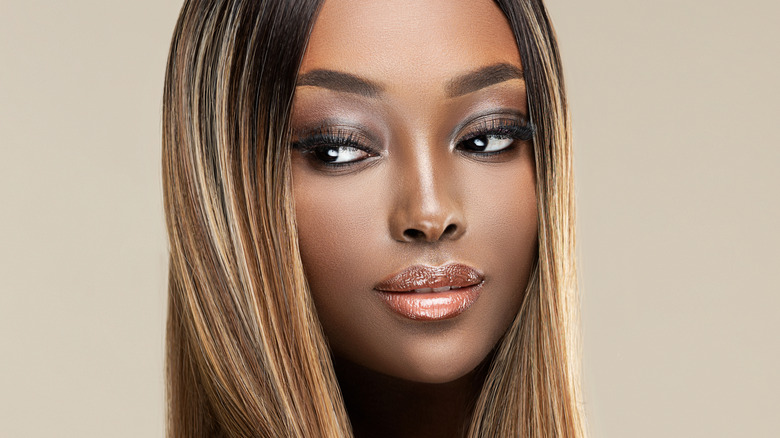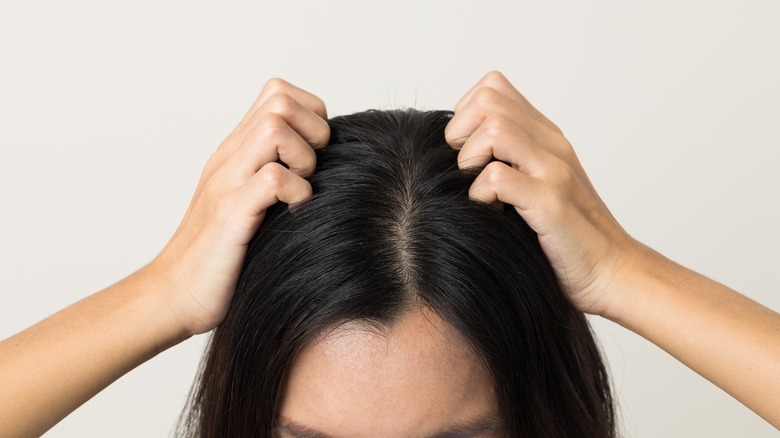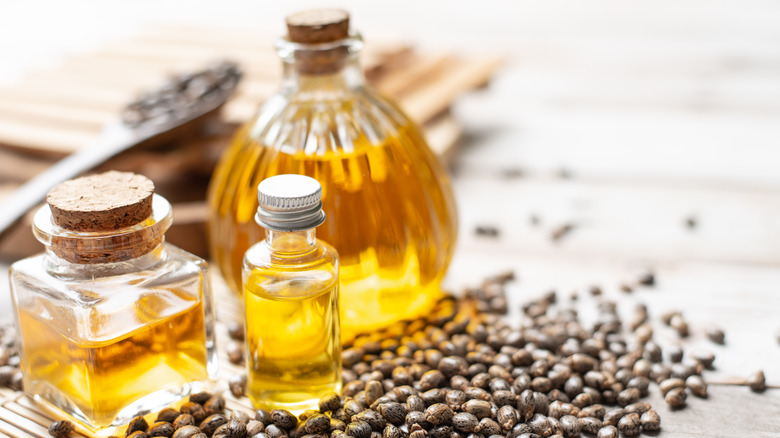Read This Before Deciding To Relax Your Hair
Whether dyeing it bright blue or cutting it all off, hair is one of the best ways to show the world who you are. So, if you're a girl rocking natural kinky curls but suddenly craving a straighter hairstyle, don't let anyone stop you.
Your natural hair will always be gorgeous, but there's nothing wrong with wanting to change up your hair now and then. Niiki Sparks, a YouTuber who details her healthy hair journey with relaxed hair, shared a video on combatting those who might "relaxer-shame" your decision to wear your hair straight. Your hair is all yours and what you choose to do with it is up to you!
But before you rush for the at-home relaxer kit, be sure you know what you're getting into. Teen Vogue warns us that relaxing your hair is a big commitment — one that will completely change your hair structure. Knowing what you should do before getting a relaxer may save you a few headaches later.
You shouldn't scratch your head before getting a relaxer
There is no pain quite like feeling your scalp burn because you made the common mistake of scratching your head the night before getting a relaxer. Any irritation to your scalp at least a week before your relaxation can cause the experience to be painful, and this includes washing your hair (via TCB Naturals).
Your scalp may start feeling itchy in the weeks leading up to getting your hair relaxed. Some users from the Long Hair Care Forum, a website dedicated to growing long and healthy hair, believe the itchy feeling that suddenly appears right before you need a relaxer is all in your head — literally. Knowing you're not supposed to scratch your head may cause you to focus on your scalp and how it feels. Users recommend gently patting your hair if that itchy feeling becomes impossible to ignore.
This oil will protect your scalp during a relaxer
A healthy scalp is the key to hair growth. Don't believe us? A study on the effects of scalp massages found that the stressing technique actually led to increased hair thickness and a decrease in hair-loss-related gene expression (via National Library of Medicine).
The scalp is where new hair blossoms, so it's best to ensure your new growth stays protected. This protection is essential during the hair-relaxing process. That's because a relaxer puts a lot of stress on your hair, according to heavyweight haircare brand Head & Shoulders. Powerful chemicals will soak into your hair cortex and reform the bonds within them. If done incorrectly, a relaxer may lead to hair thinning and breakage.
To protect your hair from these dangers, Essence recommends basing your scalp in castor oil. This lubricant acts as a barrier between the most delicate parts of your hair and the chemicals from the relaxer.


